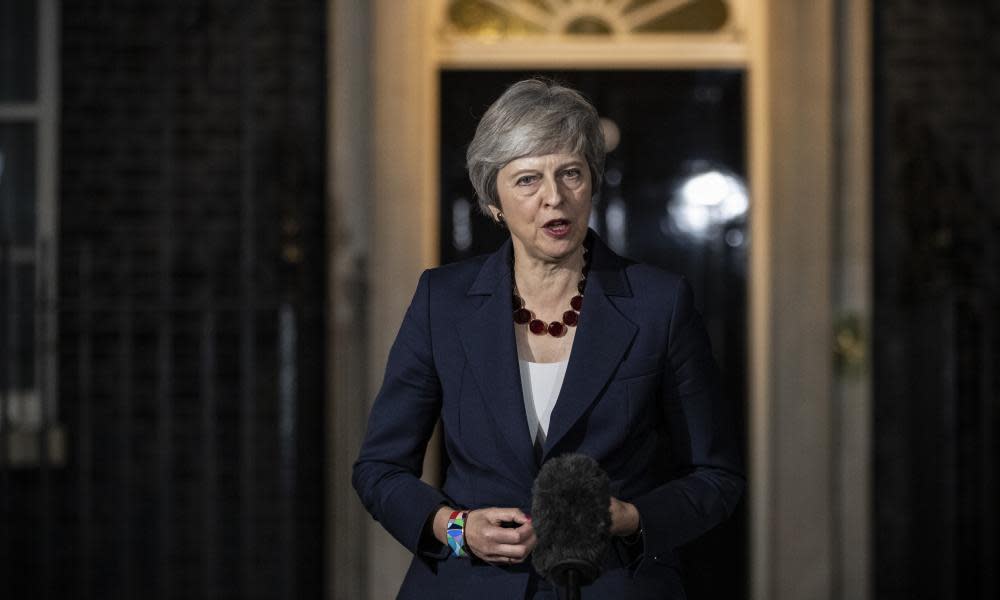Generations to come will not forgive us. It is time for a second referendum

Three times in my life, I have lived through momentous history.
In September 1939, I listened to a wall-mounted radio in our home in Swansea as Neville Chamberlain announced that we were at war with Germany. In May 1945, my parents took me to London for the first time, and booked a room in a hotel overlooking Piccadilly Circus. That night I watched the delirious crowds celebrate the end of the second world war.
Finally, I was in Berlin, in August 1961, wandering around the deserted eastern area of the city with my journalist’s press pass, when the Russians closed the wall. I found myself in a no man’s land in front of the Brandenburg Gate, with Russian submachine guns in front of me and German students singing Deutschland uber alles behind me.
The third week of November 2018 will live in my memory as another encounter with the history of our time. The government published a document reversing the political achievements of every Conservative prime minister for whom I have worked. The prime minister’s conviction is that it is in our national interest to do so. Two years ago she argued precisely the opposite.
That she has devoted great energy and stamina to her new-found cause is unquestioned. She is entitled to feel a bitter resentment at the treatment to which she has been subjected by the Eurosceptic wing of the Conservative party. A phone call to John Major would have forwarned her of the risk.
Within days of the referendum, I declared my determination that we should fight to reverse that decision. I also recommended that the responsibility for negotiating the new arrangements should be handed to people who believed in such a purpose, feeling that any other course would leave the Eurosceptics able to argue against any possible outcome with the claim that if they had been in charge, it would all have been so much better.
The three ministers in charge of our departure – Boris Johnson, David Davis and Liam Fox – had two years to use their persuasive powers to bring the Europeans round to their view. The outcome was inevitable. The EU was never going to change the rules of the club to serve the self-interest of a departing member. Slowly, despite all the bluster and the oversold claims, Mrs May did what prime ministers always do. To extract something from the wreckage, she called on the civil servants to get a grip. The three Brexit ministers had completely failed to chart a way forward and were now determined to get out from under their failures.
My lifelong commitment to close European relationships is founded in the origins of the European movement itself. It is about a framework of peace and democracy that has has worked and is worth preserving. I simply cannot accept a concept of an ever-closer Europe – whose decisions will profoundly affect every aspect of our lives – from which we will voluntarily exclude ourselves. Successive generations will never forgive us.
For many, the arguments are more self-centred, more entrenched in the soil of economic prosperity. I have no criticism of that, but I am dismayed by the delusions advanced in place of reality.
The City of London is a major asset. But the head offices are elsewhere
A significant component of British postwar industrial policy has been the investment here of major car manufacturing companies. I have played my part in these negotiations. They come here not in order to access the UK market, but the European market. There are virtually no British-owned car companies left. And the significant investment decisions are not taken in the UK, but in head offices around the world. If there are emerging markets open for business, those HQs will determine how to access them either by direct investment as they did here or by serving them from other existing plants closer to these markets. If we cut ourselves off or erect barriers to efficiency between ourselves and the European markets, they will diversify there.
We hear the same deluded claims about the success of the City. This success is undoubted, and is a major asset. But again the head offices are elsewhere. Opportunities overseas will be grabbed just as the opportunity to invest in London was grabbed. But the decisions will be taken in New York, Shanghai, Berlin and Paris. The involvements will be made in the new financial centres employing local nationals or managers from the investing country. Profits will similarly flow not to London but to the parent nation. This realpolitik analysis of much of the British economy is the background against which to judge the wildly optimistic claims for speedy and more generous trade deals. It was always fanciful to think that we could replicate this infrastructure in a way that was economically more effective. Particularly so against the other ingredient of Brexism – the policy that we will tell less prosperous economies than our own that only their most talented citizens, whose education has been paid for at home, have a change of coming here.
The government now faces uncomfortable choices. There is no rational argument that sees the Brexit deal passing through the Commons. Every day that it takes the government to recognise this increases the risk of no deal. I do not believe that the Commons will allow this devastating consequence to arise. Two things have to happen. A cross-party alliance has to vote for an alternative option – the most obvious is to put the issue back to the British people in a second referendum. The Europeans have to agree – and I think they would – to move the March 2019 deadline to allow time for this.
That is the real national interest. The electorate has changed and changes every day. Let them vote to stay.

 Yahoo News
Yahoo News 
